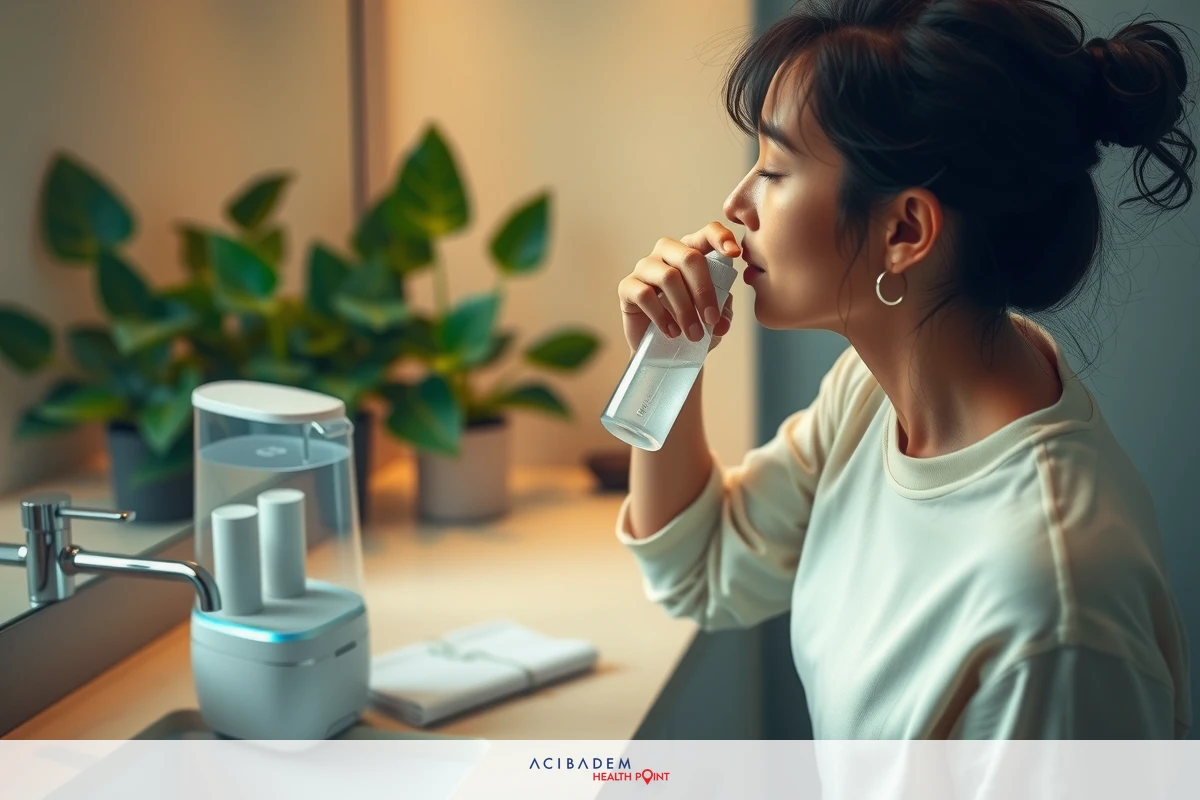How to Keep Nose Moist After Rhinoplasty
How to Keep Nose Moist After Rhinoplasty Imagine the scenario. You’ve successfully undergone a rhinoplasty. Now, you’re on the road to recovery with one primary goal – ensuring your nose stays moist post-surgery to promote effective healing.
Maintaining nasal hydration might seem like a minor detail in the grand scheme of things, but its importance during the recovery phase cannot be overstated. Optimal moisture levels can aid in speeding up wound healing, reducing scarring and offering comfort by easing dryness or irritation.
The focus here is not just about understanding why keeping your nose moist after rhinoplasty is important; it’s also about learning practical ways to achieve this crucial aspect of post-operative care at home. Tips such as using saline sprays or maintaining proper indoor humidity can help make your journey towards recovery smoother and more comfortable.
Why Nasal Moisture is Important
A patient who has recently undergone rhinoplasty might wonder why keeping their nose moist is a significant part of the recovery process. It’s not just about comfort, although that certainly plays a role. The moisture in your nose serves several essential functions that directly impact your healing post-rhinoplasty.
Primarily, maintaining nasal moisture aids in wound healing by creating an optimal environment for tissue repair and regeneration. A dry nasal passage can lead to irritation, discomfort, or even infection – all factors you want to avoid during your recovery period. Additionally, proper hydration promotes blood circulation which brings necessary nutrients and oxygen to the surgical site further enhancing wound healing.
The importance of nasal moisture extends beyond direct physical benefits. From a psychological perspective, managing this aspect well contributes positively towards overall post-operative care experience and patient satisfaction levels. If patients are comfortable and free from unnecessary pain or discomfort due to dryness, they’re more likely to comply with other aspects of aftercare instructions ensuring better outcomes overall.
Role that adequate nasal hydration plays on long-term results following rhinoplasty surgery. Reduced scarring and less incidence of crusting or bleeding are some
advantages offered by maintaining good levels of humidity within the nostrils post- surgery; thus contributing significantly towards achieving desired aesthetic results.
Whether it’s facilitating faster wound healing times during initial recovery stages; fostering better adherence with aftercare instructions by reducing pain; or promoting optimal aesthetic outcomes over time – each underscores how critical keeping one’s nose moist after rhinoplasty really is.

Tips for Keeping Your Nose Moist
Navigating the post-operative care landscape after rhinoplasty can seem like a daunting task, but it doesn’t have to be. One of the crucial factors that can significantly influence your recovery and comfort is ensuring proper nasal hydration. Here are some practical tips and techniques you can employ to keep your nose moist during this critical period.
- Nasal Saline Spray: Regular usage of over-the-counter saline sprays is one of the most effective ways to maintain moisture in your nasal passages following surgery.
- Humidifier: A humidifier helps increase humidity levels in your environment, preventing dryness within nostrils by providing continuous moist air.
- Hydration Methods: Drinking plenty of water contributes positively to overall body hydration which indirectly aids in maintaining moisture levels within the nose.
- Avoid Dry Environments: Try as much as possible to avoid overly hot or arid environments that could dehydrate and dry out your nasal passages faster than usual.
- Breathing Techniques: Practice breathing through your mouth more often during initial recovery stages when swelling may make it difficult for adequate air (and thus moisture) flow through nostrils.
By incorporating these tips into your post-rhinoplasty routine, you’ll be taking active steps towards not just promoting better healing conditions but also increasing personal comfort throughout the recovery journey – making it an experience that’s manageable rather than overwhelming.
Common Concerns about Nasal Moisture
How do I know if my nose is getting enough moisture post-rhinoplasty?
It can be tricky to gauge nasal hydration levels, but some signs indicate a well- moisturized nose. These include the absence of dryness or discomfort, and no crusting or hard mucus within nostrils. If you experience persistent dryness, irritation, or frequent bloody noses despite following hydrating measures - it may signal insufficient moisture.
Can over-hydration harm my recovery process?
While it's crucial to keep your nose moist after rhinoplasty surgery, excessive hydration that results in constant wetness isn't beneficial either. Overly wet conditions could potentially promote bacterial growth leading to an infection risk. As with most things in life - balance is key.
Is there any problem with using saline spray too often for nasal moisture?
Saline sprays are typically safe and non-irritating even with regular use as they mimic your body's natural fluids. But remember not to overuse them as excess moisture can also cause issues such as mentioned earlier.
Will I need to keep moisturizing my nose indefinitely after rhinoplasty?
Not necessarily! The emphasis on maintaining nasal moisture is primarily during the healing phase when tissues are repairing themselves post-surgery which generally lasts a few weeks up until a couple of months at most depending on individual cases.
By addressing these common questions regarding nasal hydration post-rhinoplasty – whether about recognizing adequate moisture levels; understanding potential risks tied with over-hydration; frequency of saline spray usage; or duration needed for diligent moisturizing efforts – hopefully we’ve managed to alleviate some concerns you might have had about this aspect of recovery care.











